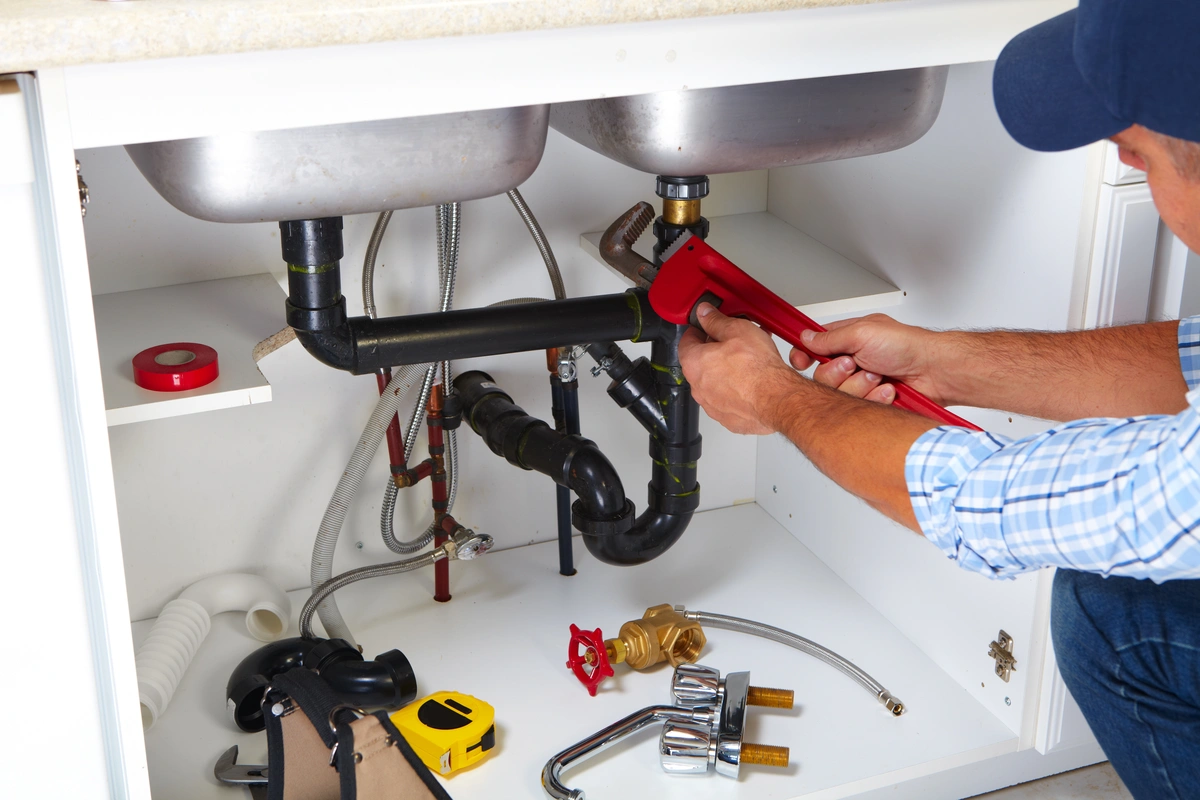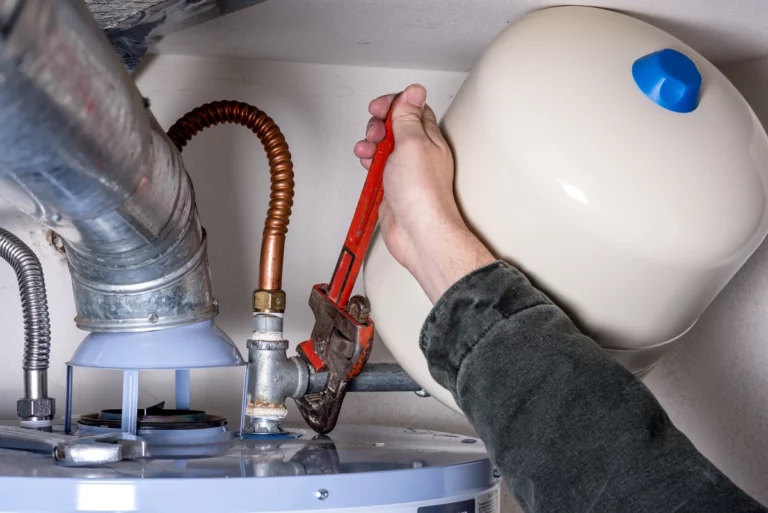Are you looking to hire a plumber but not sure how much it will cost? Plumbing services can range from minor repairs to major installations, and costs can vary accordingly.
Keep reading as our plumbers break down the various factors that influence plumbing costs, including labor, supplies, complexity, and unanticipated expenses. We’ll also discuss the different types of plumbing services and their corresponding costs. Plus, we’ll explore when it’s necessary to call a plumber and whether regular maintenance can help reduce plumbing costs in the long run.
Understanding the Cost of Hiring a Plumber
Factors influencing the cost of hiring a plumber include:
- Labor
- Materials
- Complexity
Professional plumbers charge varying rates for repair versus installation services, which can greatly impact overall costs. Understanding potential issues and the national average cost is crucial.
Note: The first hour of work generally incurs higher costs, especially for new fixtures and repairs.
Average Cost Range of Plumbing Services
Based on the service and urgency of the plumbing issue, you can expect to pay between $200 and $500 for a licensed plumber throughout the United States.
Plumbing service costs vary depending on the type of service and the plumber. Understanding average costs aids in estimating new plumbing expenses, repairs, and minor fixes.
Hourly Rates vs Flat Rates: What’s Common?
Hourly rates and flat rates are common pricing models used by plumbers. These rates can impact the overall cost of plumbing services and repairs. Understanding the differences between hourly rates and flat rates is important for estimating costs and budgeting for plumbing projects. Consider these factors when comparing pricing options for your specific plumbing needs.
Factors Influencing a Plumber’s Service Cost
Factors influencing a plumber’s service cost include the plumber’s experience, skill level, and journeyman plumber status, impacting hourly rates. Additional costs arise from clogged drains, sewer lines, and leaky faucets, affecting average plumbing work costs. Licensed plumbers charge varying rates, impacting repair costs and new plumbing fixtures. An understanding of these factors helps in estimating plumbing repair costs, labor costs, and new plumbing expenses.
Plumber’s Experience and Skill Level
The expertise and proficiency of a master plumber significantly impact plumbing costs and hourly rate charges. When engaging a skilled plumber, the complexity of the job, such as handling burst pipes or resolving water pressure issues, contributes to the average cost of plumbing work. Additionally, a licensed and experienced plumber’s status influences installation costs and the expense of new plumbing fixtures. Understanding the skill level of a plumber is crucial in estimating labor costs, repair expenses, and overall additional costs. Skilled plumbers typically handle complex tasks, influencing the average cost of plumbing services.
Type of Plumbing Service Required
Different requirements for plumbing services, like repairs, installations, and new fixtures, influence the average costs. Understanding these needs helps to estimate labor and hourly rate costs. Factors such as clogged drains, sewer lines, and leaky faucets impact repair and new plumbing costs. The diverse services required result in varying costs, affecting new plumbing fixtures, labor, and hourly rates.
The Complexity of the Plumbing Job
Assessing the intricacy of plumbing tasks, like burst pipes or gas lines, significantly impacts repair costs, hourly rate costs, and expenses for new plumbing. Understanding these complexities aids in estimating average plumbing work costs, labor costs, and additional expenses. Factors such as water pressure and potential issues impact installation costs. Plumbers typically charge higher repair costs for complex jobs, affecting new plumbing fixtures, hourly rate costs, and additional expenses, making it the last thing to consider before finalizing the budget.
Plumbing Supplies
Quality plumbing materials and supplies play a significant role in determining the cost of plumbing services. They impact installation costs, new plumbing fixtures cost, and hourly rate costs. Understanding the cost of these materials helps in estimating average costs of plumbing work and repair costs. Additionally, old pipes, plumbing fixtures, and toilet handle repairs also influence new plumbing costs and labor costs. Assessing the importance of quality supplies aids in understanding additional costs associated with plumbing work.
Materials
The impact of plumbing materials, water lines, and old pipes on new plumbing fixtures cost, installation costs, and hourly rate costs is significant. Quality plumbing supplies and water heater installation costs contribute to additional costs, influencing hourly rate costs and repair costs. Plumbing companies charge various costs for plumbing materials, affecting new plumbing costs, labor costs, and the average costs of plumbing work. Understanding these costs helps in estimating installation costs, additional costs, and repair costs.
Supplies
Quality supplies, such as plumbing materials and water lines, greatly impact the overall cost of plumbing services. They affect the pricing of new plumbing fixtures, installation, and hourly rates. Understanding the importance of using quality supplies helps in estimating average costs, labor expenses, and additional charges accurately. Assessment of the cost of these supplies is crucial in comprehending installation and repair costs, making it the last thing to consider when evaluating the entire expense.
Unanticipated Expenses in Plumbing
When planning for plumbing work, it’s important to consider potential unanticipated expenses. Permits may add to the overall project cost, while unforeseen issues and water damage repair can impact the budget. Additionally, diagnostics, haul-away, and disposal services may contribute to unexpected plumbing expenses. These additional costs, beyond labor and materials, should be factored in to ensure a comprehensive plumbing budget.
Permits & Their Costs
When planning plumbing work, obtaining permits incurs additional costs, impacting the overall expenses. The cost of permits varies based on the project’s scope and complexity. New installations and complex jobs may have higher permit costs. Understanding these costs is crucial for accurate expense estimation. Local building regulations and codes influence permit costs for plumbing work, making it essential to factor them in.
Diagnostics, Haul-Away & Disposal Fees
Understanding the potential additional costs in plumbing services is crucial for budgeting. Diagnostics, such as leak detection, may result in extra charges, while proper disposal of old materials can lead to added haul-away costs. Additionally, services like sewer line inspection contribute to the total expenses. It’s essential to be aware of these potential extra charges and factor them into the overall budget. Proper management of these additional costs is the last thing to consider for a well-planned plumbing project.
Water Damage Repair Expenses
Addressing issues of water damage repair is a crucial aspect of plumbing projects, impacting the overall expenses. Plumbing companies often charge additional costs for addressing water damage, making it an important factor to consider in project planning. Timely resolution of water damage issues is essential to prevent further complications, minimizing the overall repair expenses. Understanding the potential costs associated with water damage repair is vital for accurate budgeting and cost estimation.
Benefits of Hiring A Professional Plumber
So why should you hire a plumber and pay these fees instead of just doing it yourself? Using plumbing companies has several benefits, including:
Expertise: Master plumbers have the knowledge to diagnose and fix plumbing problems quickly and efficiently. They have the necessary training and experience to handle even the most complex plumbing issues, like sump pump installation, sewer line problems, and water heaters.
Quality Workmanship: Professional plumbers are committed to providing high-quality workmanship. They also use the best materials and plumbing tools available. They take pride in their work and strive to ensure that their repairs and installations are done right the first time.
Safety and Security: Plumbing work can be dangerous, especially when dealing with gas lines or electrical components. Professional plumbers have the necessary safety equipment and training to ensure the job is done safely and without risk to you or your home.
Saves You Time And Money: Trying to fix a plumbing problem on your own can be time-consuming and may end up costing you more money in the long run. Professional plumbers can identify the problem quickly and offer an efficient and cost-effective solution.
Questions To Ask Before Hiring A Plumber
Here are 10 questions to ask before hiring a professional plumber:
- Are you licensed and insured?
- What kind of experience do you have?
- Can you provide references or customer reviews?
- What is your pricing structure?
- What is your availability and response time for emergencies?
- Do you offer warranties or guarantees on your work?
- Will you provide a detailed estimate before starting the work?
- What kind of equipment and materials do you use?
- Will you clean up after completing the job?
- How do you handle unexpected complications or changes to the job?
Choosing The Right Plumber
Here are some tips to help you find the right plumber for your needs:
Check for licensing and insurance: Always choose an insured and licensed plumber. Insured and licensed plumbers ensure their clients are protected from liabilities in case of damages or accidents during the job. Always ask for proof of licensing and insurance before hiring a plumber.
Look for experience: Choose a plumber with experience in the type of work you need. Look for plumbers who have been in business for several years and have experience with the specific issue you’re dealing with.
Research online reviews and ratings: Before hiring a plumber, ask for references from past clients and check online reviews to get a sense of their reputation. A good plumber should have positive reviews and be willing to provide references.
Ask for estimates from multiple companies: Always get multiple quotes from different plumbers to ensure you’re getting a fair price. Compare quotes based on the same scope of work and materials before making a choice.





